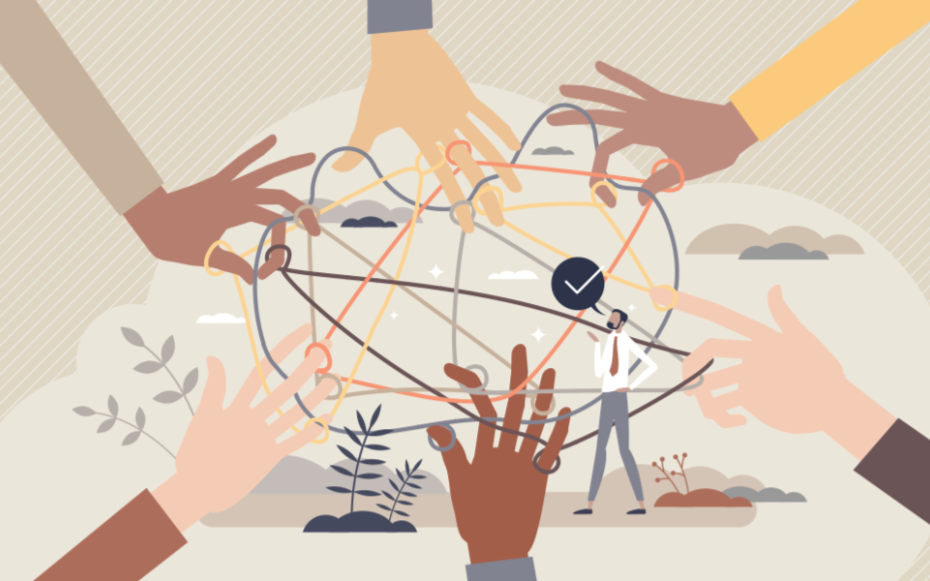Established in 2017, the University at Buffalo’s (UB’s) Social Impact Fellows program (SIF) promotes collaboration, interdisciplinary exchange, and the value of social innovation among students and faculty in the University’s School of Management, School of Social Work, and College of Arts and Sciences.
The eight-week immersive program uses project-based internships to prepare graduate students with an awareness of social challenges, the skills and techniques used to address them, and knowledge of alternative business models that can sustain innovative solutions.
“SIF engages the community as a laboratory, where students gain real-world experience while partner organizations test new ideas, explore new markets and demographic groups, and adopt more socially and ecologically sustainable business practices,” explains Carrie Gardner, director of internships and experiential learning in the UB School of Management’s Career Resource Center.
“We obviously want to build an understanding of social innovation through socially minded learning. We are very interested in creating a solid bond between the university and the local community and involving our talented students and the ideas that they generate. We want this experience to make a real impact in the community and on their careers.”
UB staff and faculty facilitate the summer internships among 30 graduate students—10 each from the aforementioned UB schools and colleges—and 10 external partner sites from the local community. Each student team is made up of one M.B.A. student, one M.S.W. student, and one graduate student from the College of Arts and Sciences. Fellows receive a program stipend.
The SIF program engages local nonprofit community partners that provide multi-faceted internship projects that teach students about the intersection of societal issues and diverse populations, while challenging them to create solutions.
Fellows actively participate in on-site internships four days each week. During their engagement, they learn about societal issues as defined by their partner organization and work to develop solutions. On Friday mornings, fellows gather as a group for lab sessions facilitated by UB management and social work faculty, who coach them on social innovation strategies, take them on community site visits, and help them prepare for the pitch competition that wraps up the program.
Throughout the SIF program, the fellows collaborate, each from their own academic lens.
“Distinctly valuable about this process is the opportunity for fellows to develop trust, respect, and acceptance regarding the differences in their approach,” Gardner says.
Students who participate in the SIF:
- Learn about local nonprofits and the populations they serve;
- Gain an understanding of societal challenges faced by these populations;
- Learn to effectively function within a diverse team of their peers;
- Practice professional behavior with external partners;
- Develop an understanding of social innovation; and
- Improve upon their communication and presentation skills.
Gardner says the breadth of projects each year is inspiring and stresses her amazement at how creative and innovative the students are when they address each organization’s challenges. Some 2022 projects included:
- Developing a business plan and marketing strategy for a social enterprise through which participants receive soft skills and culinary training and sell food products locally.
- Completing a gap analysis of care at a busy hospital and writing a playbook to implement a complex care model that addresses the needs of patients and caregivers.
- Gaining an understanding around how restorative justice may be applied to domestic violence services to help an agency adopt these practices.
- Creating a business plan for a mobile farm truck that operates in neighborhoods that lack access to fresh produce.
The summer culminates with UB SIF’s “Pitch for a Cause” event, during which fellows present their achievements and innovative solutions—and vie for funding to help their partner organization continue to implement their idea.
Gardner says there are several key characteristics—such as agility, collaborative spirit, and vision—required of those who organize and facilitate the SIF program to maximize the experience for participating students and organizations.
“These are intense experiences for the SIF students as the nonprofit organizations they work with are managing very real and significant challenges based on what's happening in the local community—usually rooted in evolving impacts of change, emergent needs, new leadership, or something else,” Gardner says.
“We must be willing to listen and soak in the needs of our partner organizations, and pivot and be creative so that we can keep this program going and the experience valuable.”
Fellows also need to be collaborative and have vision because, even though this experience is serving UB’s nonprofit community, students who participate in the program might not choose that career path.
“However,” Gardner points out, “their career trajectory is so enhanced by this experience because they have the experiential foundation and courage, for instance, to ask big organizations that are generating a great deal of income every year how they serve their community, what their philanthropic activity level is, how they make sense of the world around them, if they are paying attention to the impact they have on people's lives, and other important questions, during the interview and hiring process.”
The projects the SIF students work on effectively are microcosms of what they are going to experience when they land in their first career.
“They are most definitely going to be working in teams, dealing with change, accounting for current societal impacts and influences, adjusting to market fluctuations, and more,” Gardner says.
“We can't expect great things from the students if we’re not willing to also embrace that spirit of readiness. We need to model the behavior that we want in our students, and we must be innovative and creative so that they, in turn, can be innovative and creative. We have to let them feel that freedom. We don't want to micromanage the SIF program to the level that the students feel stifled by it.”
She notes that organizers solicit feedback from participating students and organizations every year, and act on the recommendations.
“We strive every year to make changes to the program so that we're improving it continuously,” Gardner says.
“After all, we know through this program that innovation is really about adopting an action-oriented mindset.”







